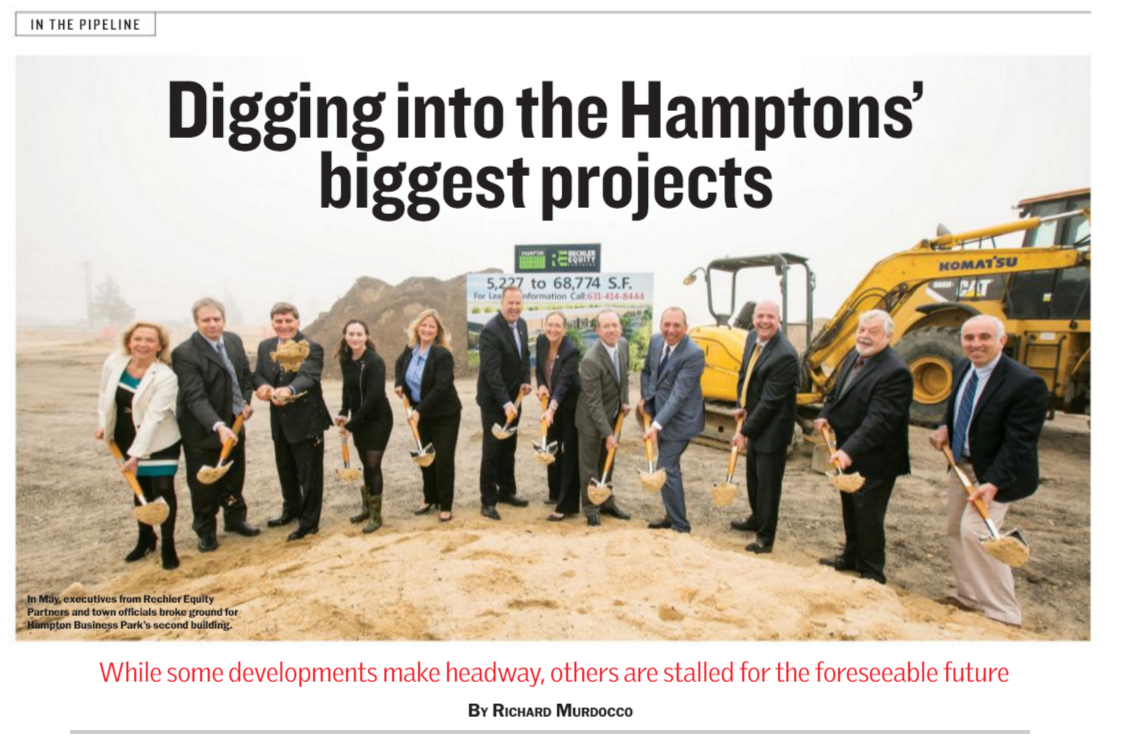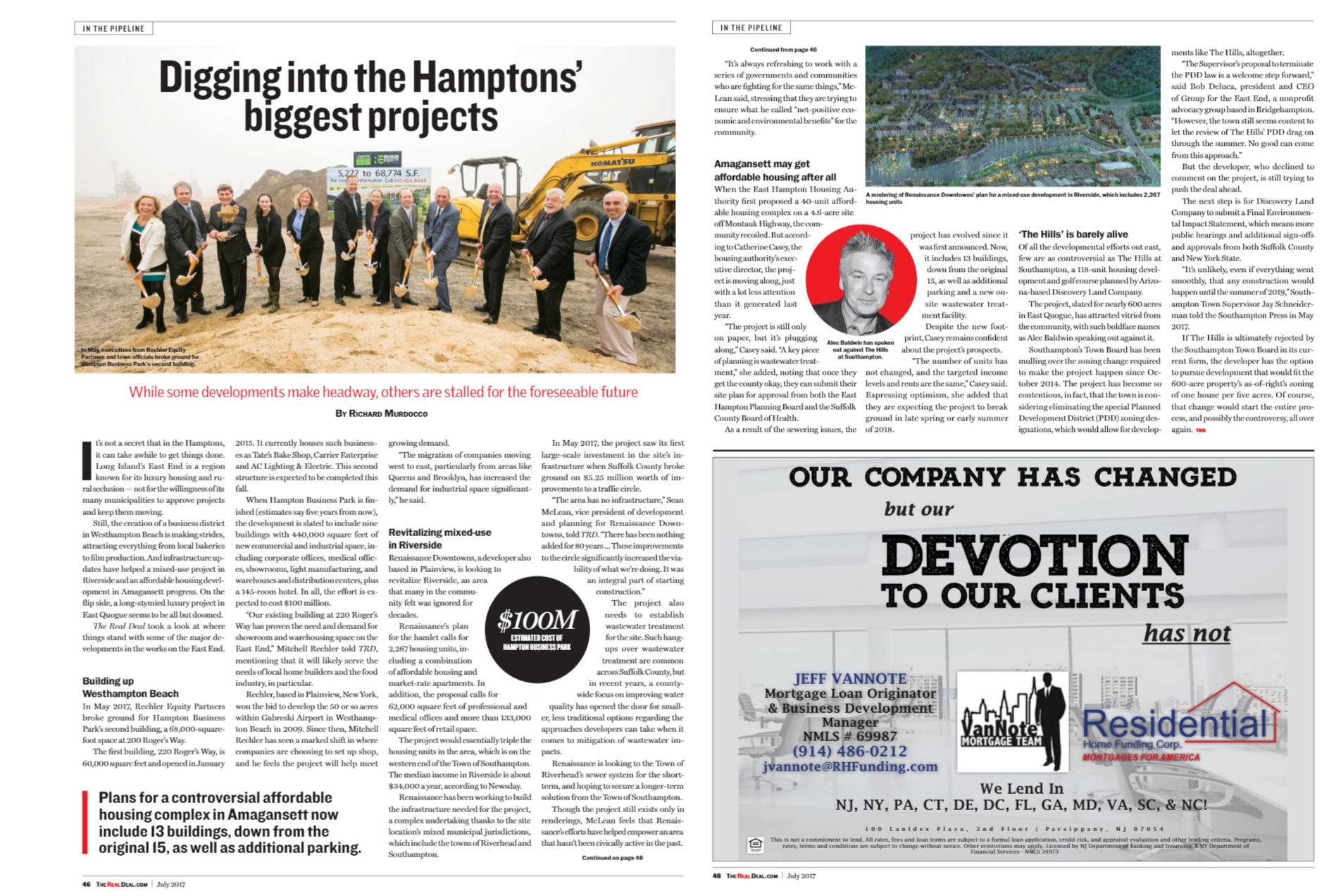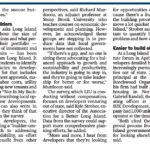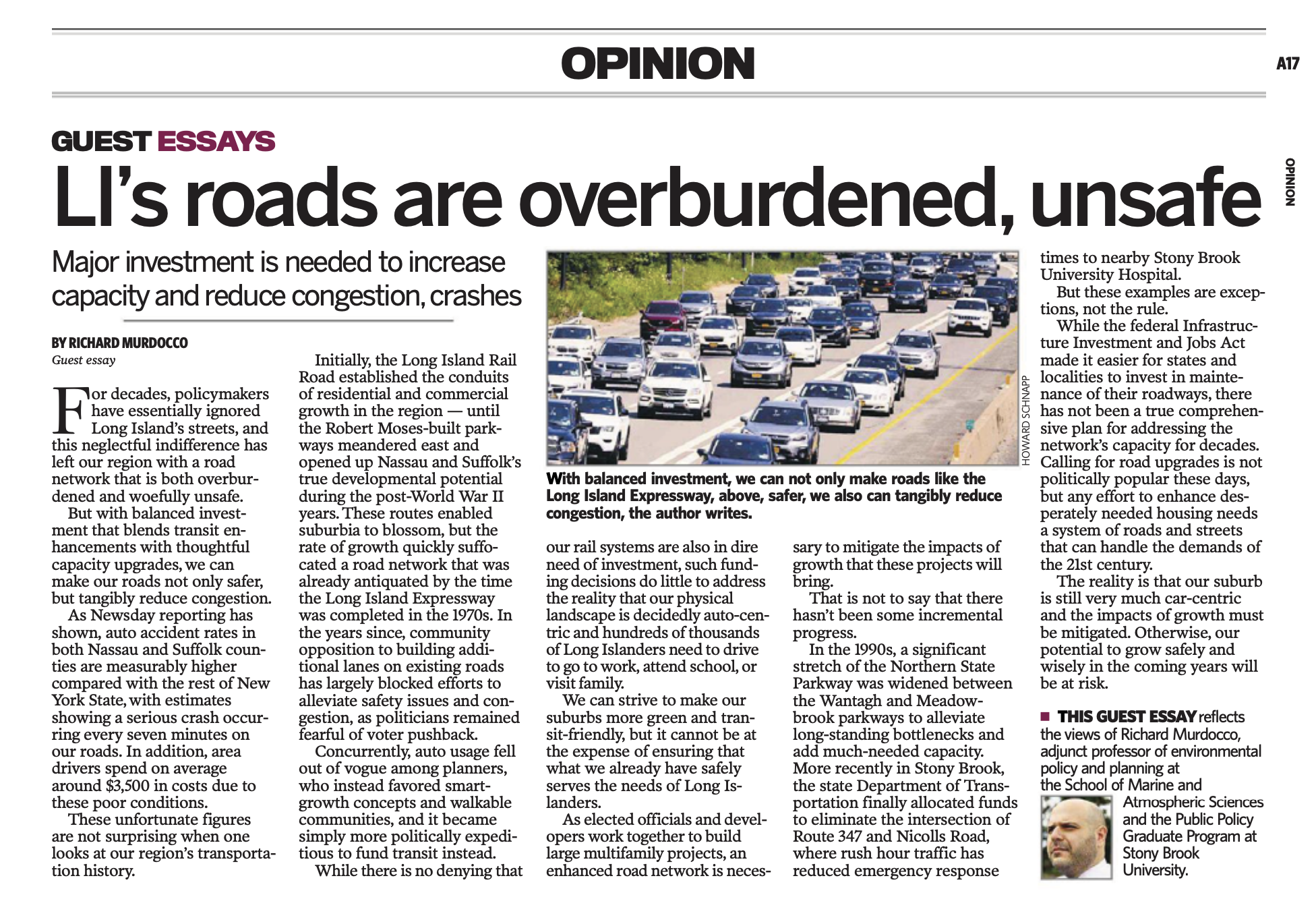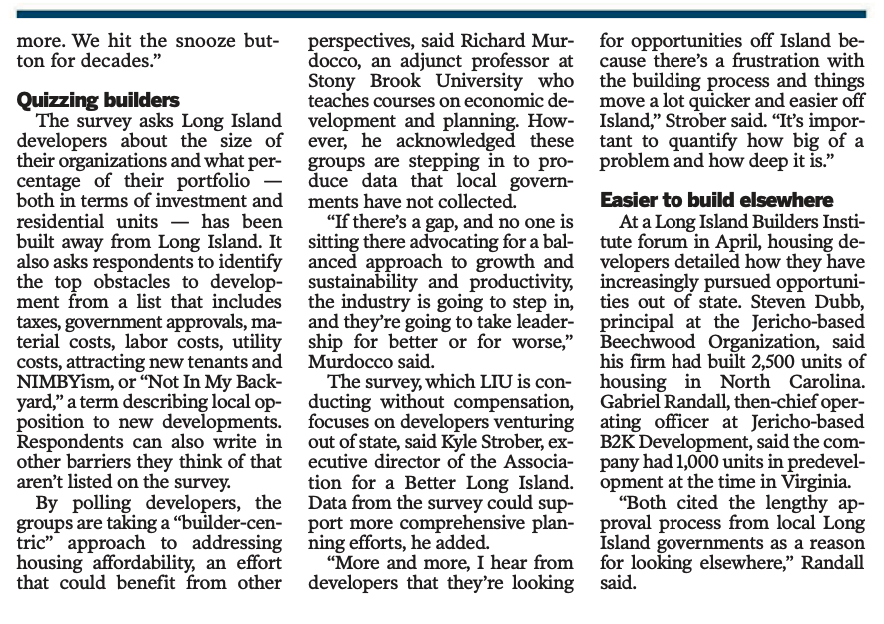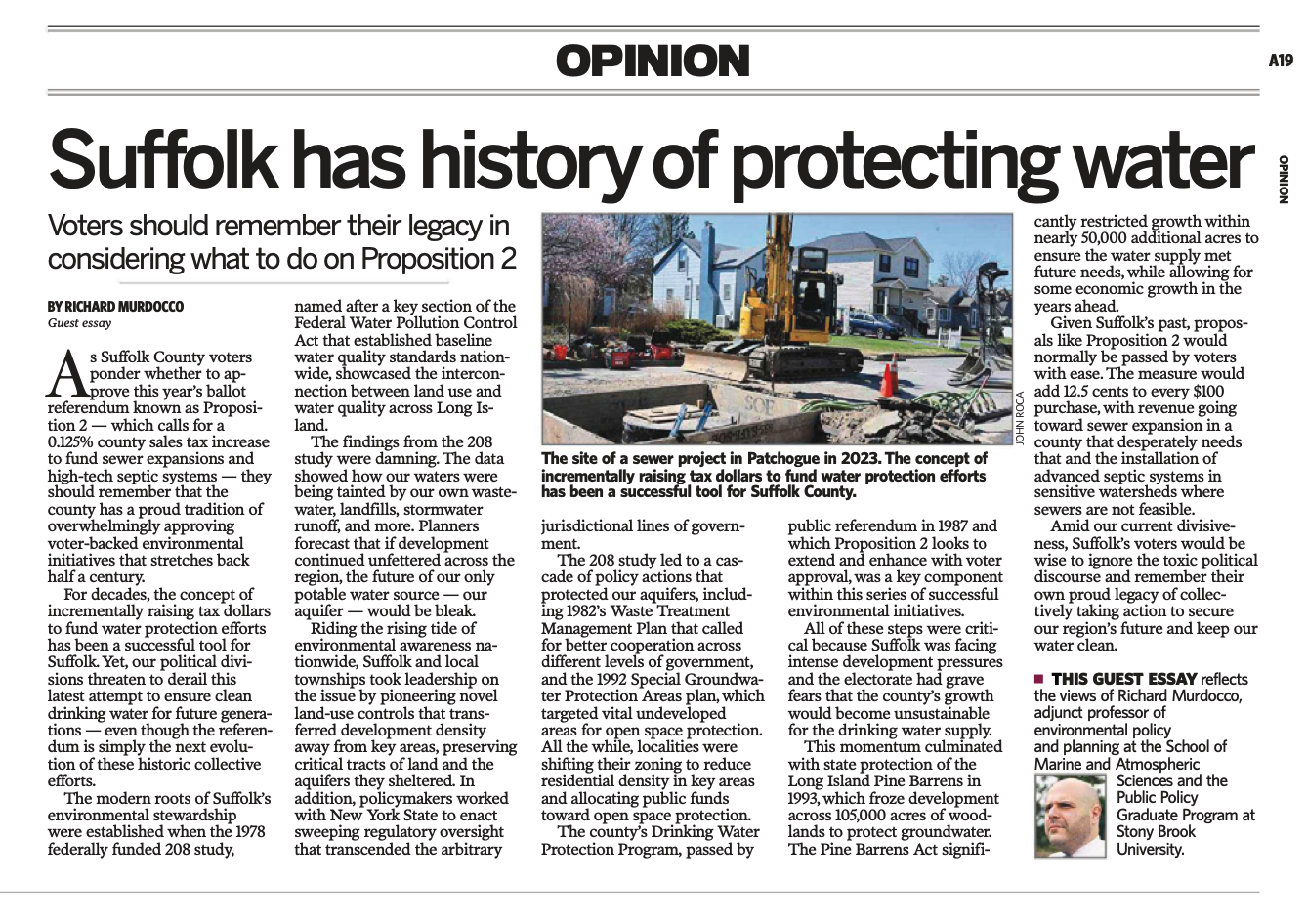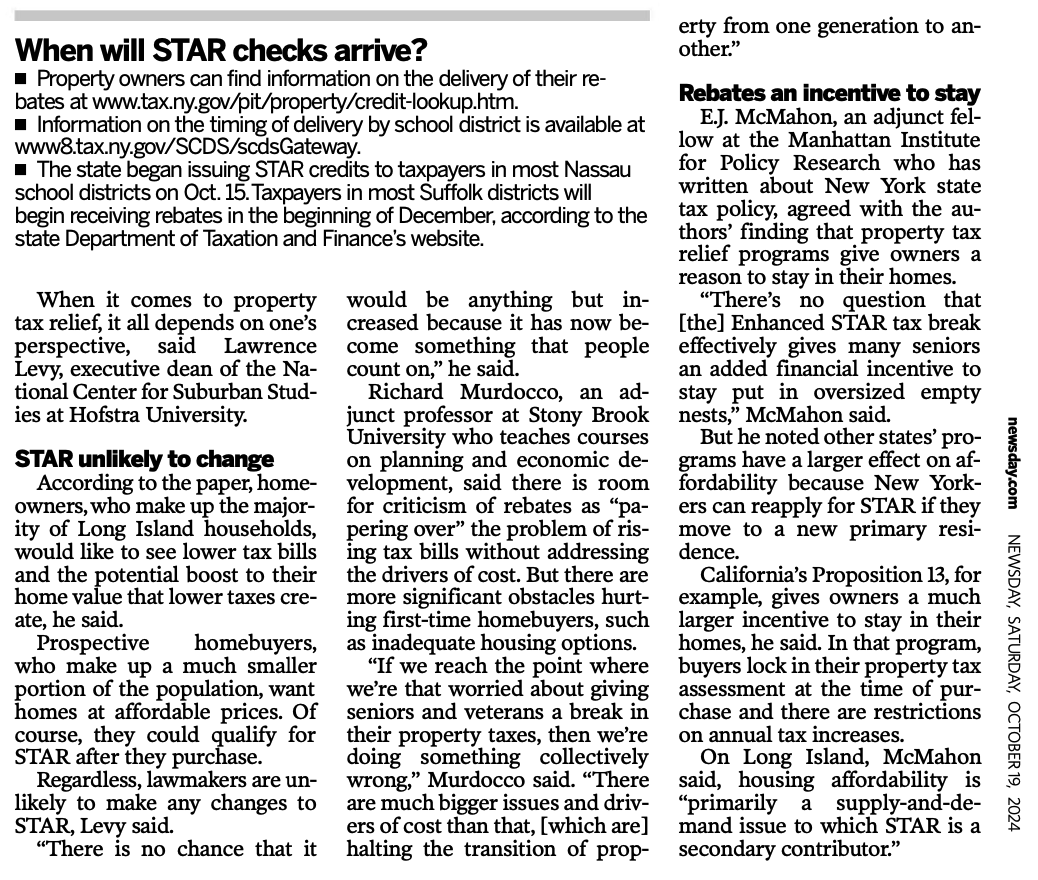The following was published in the July 2017 Special Hamptons edition of The Real Deal. You can read the original here.
It’s not a secret that in the Hamptons, it can take awhile to get things done. Long Island’s East End is a region known for its luxury housing and rural seclusion — not for the willingness of its many municipalities to approve projects and keep them moving.
Still, the creation of a business district in Westhampton Beach is making strides, attracting everything from local bakeries to film production. And infrastructure updates have helped a mixed-use project in Riverside and an affordable housing development in Amagansett progress. On the flip side, a long-stymied luxury project in East Quogue seems to be all but doomed.
The Real Deal took a look at where things stand with some of the major developments in the works on the East End.
Building Up Westhampton Beach
In May 2017, Rechler Equity Partners broke ground for Hampton Business Park’s second building, a 68,000-square-foot space at 200 Roger’s Way.
The first building, 220 Roger’s Way, is 60,000 square feet and opened in January 2015. It currently houses such businesses as Tate’s Bake Shop, Carrier Enterprise and AC Lighting & Electric. This second structure is expected to be completed this fall.
When Hampton Business Park is finished (estimates say five years from now), the development is slated to include nine buildings with 440,000 square feet of new commercial and industrial space, including corporate offices, medical offices, showrooms, light manufacturing, and warehouses and distribution centers, plus a 145-room hotel. In all, the effort is expected to cost $100 million.
“Our existing building at 220 Roger’s Way has proven the need and demand for showroom and warehousing space on the East End,” Mitchell Rechler told TRD, mentioning that it will likely serve the needs of local home builders and the food industry, in particular.
Rechler, based in Plainview, New York, won the bid to develop the 50 or so acres within Gabreski Airport in Westhampton Beach in 2009. Since then, Mitchell Rechler has seen a marked shift in where companies are choosing to set up shop, and he feels the project will help meet growing demand.
“The migration of companies moving west to east, particularly from areas like Queens and Brooklyn, has increased the demand for industrial space significantly,” he said.
Revitalizing Mixed Use in Riverside
Renaissance Downtowns, a developer also based in Plainview, is looking to revitalize Riverside, an area that many in the community felt was ignored for decades.
Renaissance’s plan for the hamlet calls for 2,267 housing units, including a combination of affordable housing and market-rate apartments. In addition, the proposal calls for 62,000 square feet of professional and medical offices and more than 133,000 square feet of retail space.

A rendering of Renaissance Downtowns’ plan for a mixed-use development in Riverside, which includes 2,267 housing units
The project would essentially triple the housing units in the area, which is on the western end of the Town of Southampton. The median income in Riverside is about $34,000 a year, according to Newsday. Renaissance has been working to build the infrastructure needed for the project, a complex undertaking thanks to the site location’s mixed municipal jurisdictions, which include the towns of Riverhead and Southampton.
In May 2017, the project saw its first large-scale investment in the site’s infrastructure when Suffolk County broke ground on $5.25 million worth of improvements to a traffic circle.
“The area has no infrastructure,” Sean McLean, vice president of development and planning for Renaissance Downtowns, told TRD. “There has been nothing added for 80 years … These improvements to the circle significantly increased the viability of what we’re doing. It was an integral part of starting construction.”
The project also needs to establish wastewater treatment for the site. Such hang-ups over wastewater treatment are common across Suffolk County, but in recent years, a countywide focus on improving water quality has opened the door for smaller, less traditional options regarding the approaches developers can take when it comes to mitigation of wastewater impacts.
Renaissance is looking to the Town of Riverhead’s sewer system for the short-term, and hoping to secure a longer-term solution from the Town of Southampton.
Though the project still exists only in renderings, McLean feels that Renaissance’s efforts have helped empower an area that hasn’t been civically active in the past. “It’s always refreshing to work with a series of governments and communities who are fighting for the same things,” McLean said, stressing that they are trying to ensure what he called “net-positive economic and environmental benefits” for the community.
Amagansett may get affordable housing after all
When the East Hampton Housing Authority first proposed a 40-unit affordable housing complex on a 4.6-acre site off Montauk Highway, the community recoiled. But according to Catherine Casey, the housing authority’s executive director, the project is moving along, just with a lot less attention than it generated last year.
“The project is still only on paper, but it’s plugging along,” Casey said. “A key piece of planning is wastewater treatment,” she added, noting that once they get the county okay, they can submit their site plan for approval from both the East Hampton Planning Board and the Suffolk County Board of Health.
As a result of the sewering issues, the project has evolved since it was first announced. Now, it includes 13 buildings, down from the original 15, as well as additional parking and a new onsite wastewater treatment facility.
Despite the new footprint, Casey remains confident about the project’s prospects.
“The number of units has not changed, and the targeted income levels and rents are the same,” Casey said. Expressing optimism, she added that they are expecting the project to break ground in late spring or early summer of 2018.
‘The Hills’ is barely alive
Of all the developmental efforts out east, few are as controversial as The Hills at Southampton, a 118-unit housing development and golf course planned by Arizona-based Discovery Land Company.
The project, slated for nearly 600 acres in East Quogue, has attracted vitriol from the community, with such boldface names as Alec Baldwin speaking out against it.
Southampton’s Town Board has been mulling over the zoning change required to make the project happen since October 2014. The project has become so contentious, in fact, that the town is considering eliminating the special Planned Development District (PDD) zoning designations, which would allow for developments like The Hills, altogether.
“The Supervisor’s proposal to terminate the PDD law is a welcome step forward,” said Bob Deluca, president and CEO of Group for the East End, a nonprofit advocacy group based in Bridgehampton. “However, the town still seems content to let the review of The Hills’ PDD drag on through the summer. No good can come from this approach.”
But the developer, who declined to comment on the project, is still trying to push the deal ahead.
The next step is for Discovery Land Company to submit a Final Environmental Impact Statement, which means more public hearings and additional sign-offs and approvals from both Suffolk County and New York State. “It’s unlikely, even if everything went smoothly, that any construction would happen until the summer of 2019,” Southampton Town Supervisor Jay Schneiderman told the Southampton Press in May 2017.
If The Hills is ultimately rejected by the Southampton Town Board in its current form, the developer has the option to pursue development that would fit the 600-acre property’s as-of-right’s zoning of one house per five acres. Of course, that change would start the entire process, and possibly the controversy, all over again.

